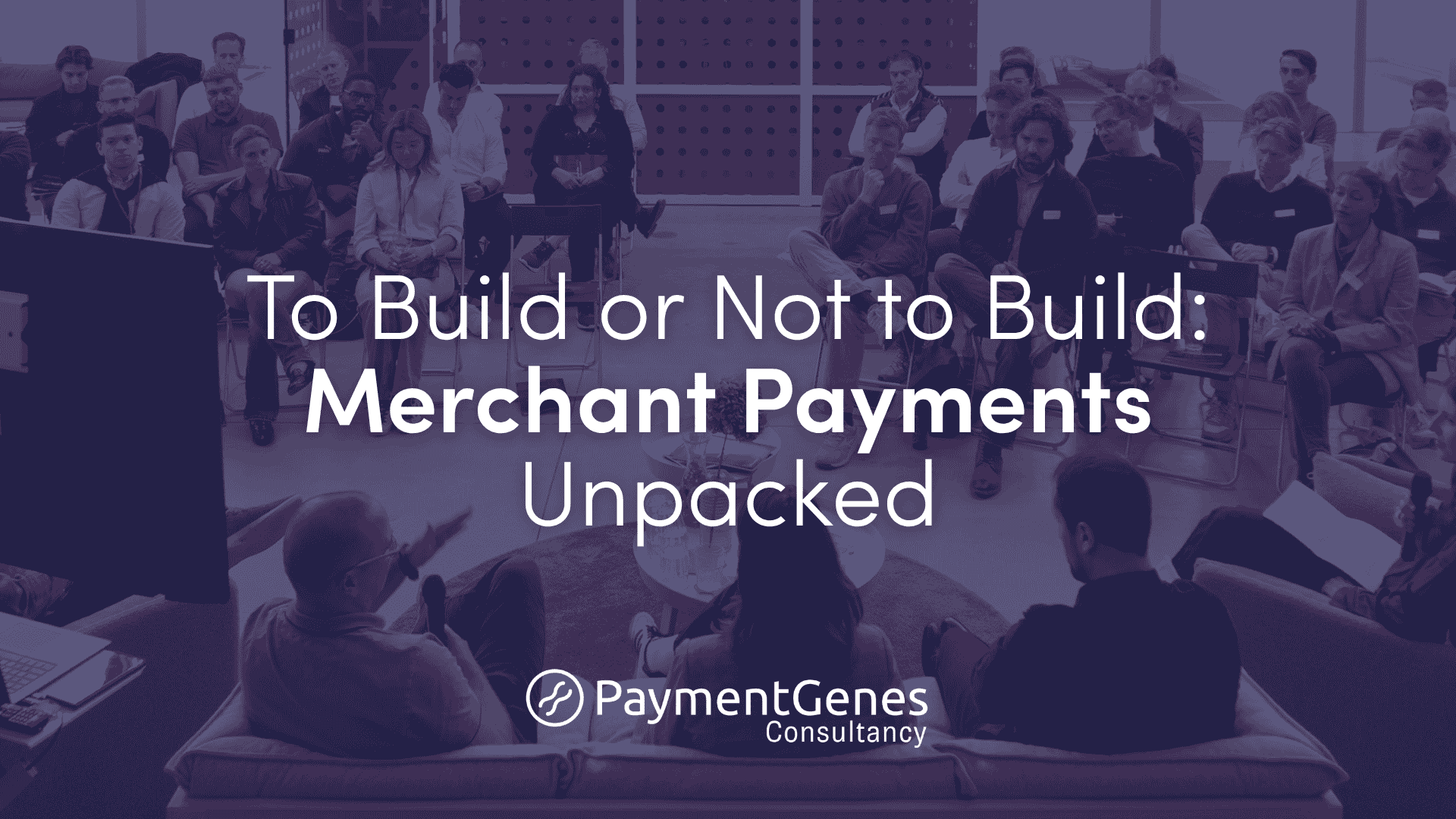
As part of our PaymentGenes Connect series, we recently co-hosted a Merchant Payments Panel in collaboration with Amsterdam Payment Meetups, bringing together leading European merchants. Joining us on stage were two standout voices in the payments space:
Moderating the conversation was Julia Veitl, Group Product Manager at IKEA Retail and Co-Host of Amsterdam Payment Meetups, who guided the panel with sharp questions and deep market insight, ensuring the conversation moved beyond buzzwords into real strategy and substance.
From orchestration to payouts, from dispute resolution to the future of in-person payments, one thing was clear: “Payments are no longer just a backend function: if done right, they’re a strategic advantage.”
Below, we’ve summarised the most important insights and strategic takeaways. Keep reading to learn what’s shaping the future of payments.
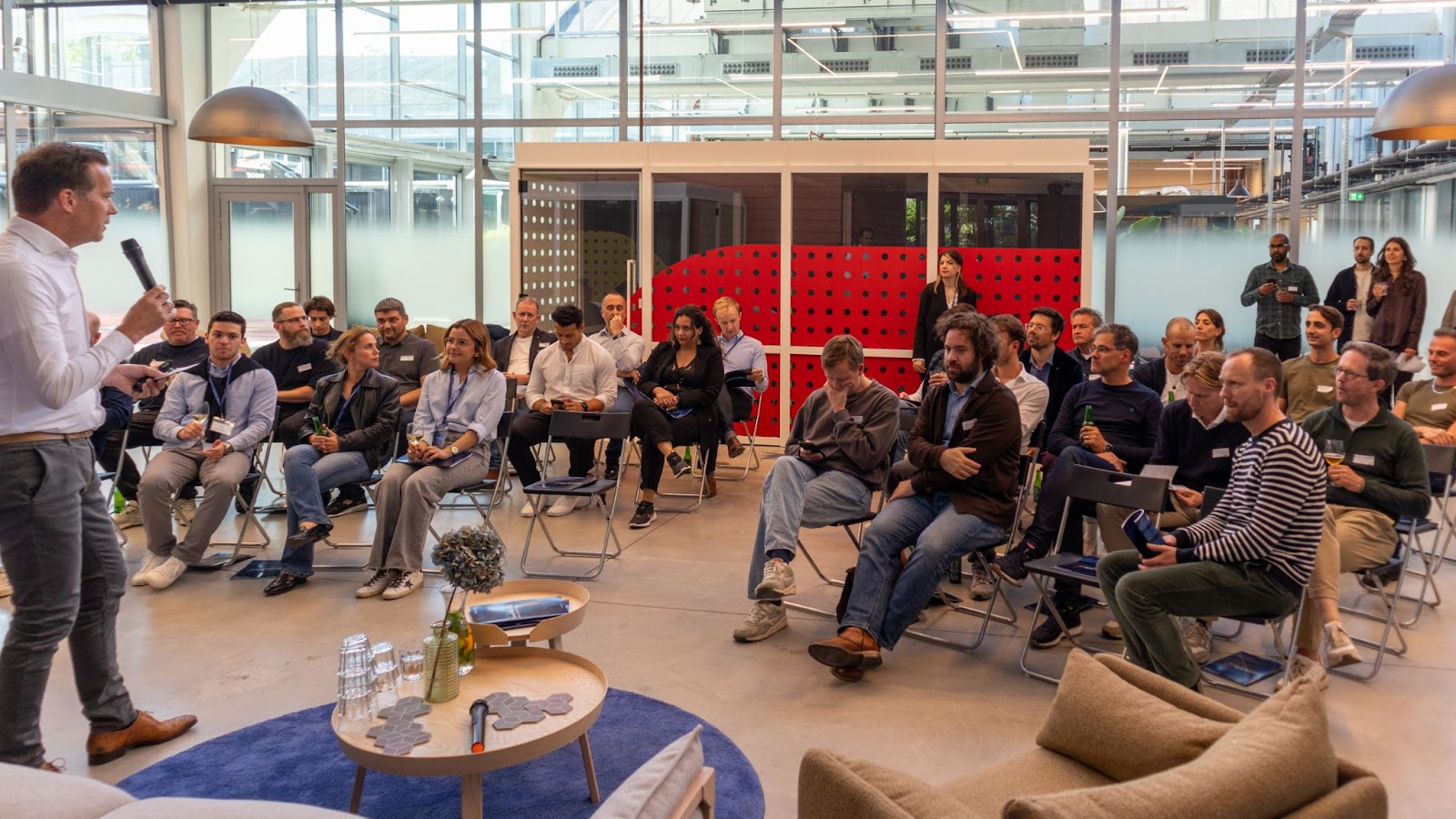
What was once a backend function is now a cross-functional concern. Payments impact finance, product, engineering, fraud, and support. More than that, payment data is a hidden superpower, providing insights into user behaviour, churn, and optimisation opportunities. Custom-built solutions are increasingly favoured over generic PSPs, especially for mature companies seeking flexibility, control, and better performance.
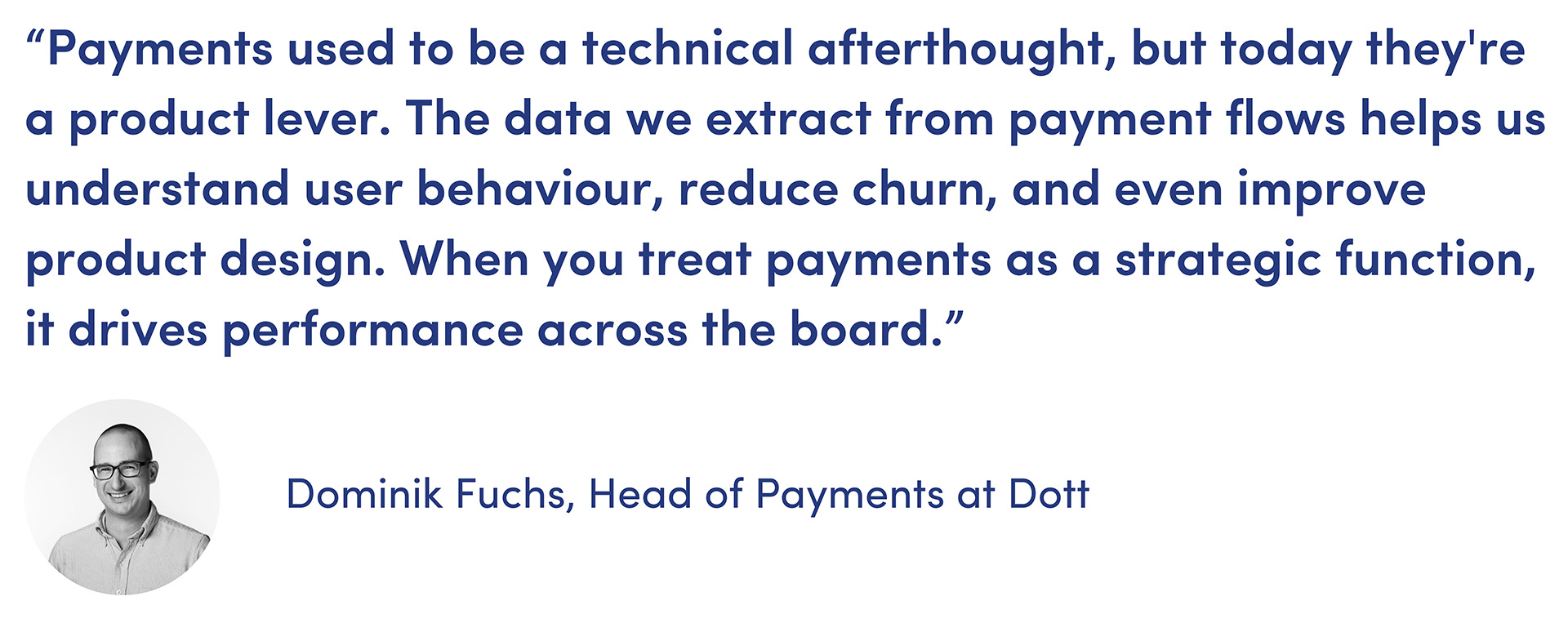
Startups often begin with ready-made payment solutions like Stripe or Adyen for speed and simplicity. But as they grow, managing multiple payment providers, compliance, and complex flows requires more customisation. Building internal orchestration layers, tokenisation vaults, and dedicated teams offers greater control and potential cost savings but demands significant investment and resources. Alternatively, partnering with payment orchestration platforms provides a flexible, scalable middle ground, offering faster integration and easier scaling without the heavy upfront costs. The right choice depends on a company’s scale, goals, and resources.
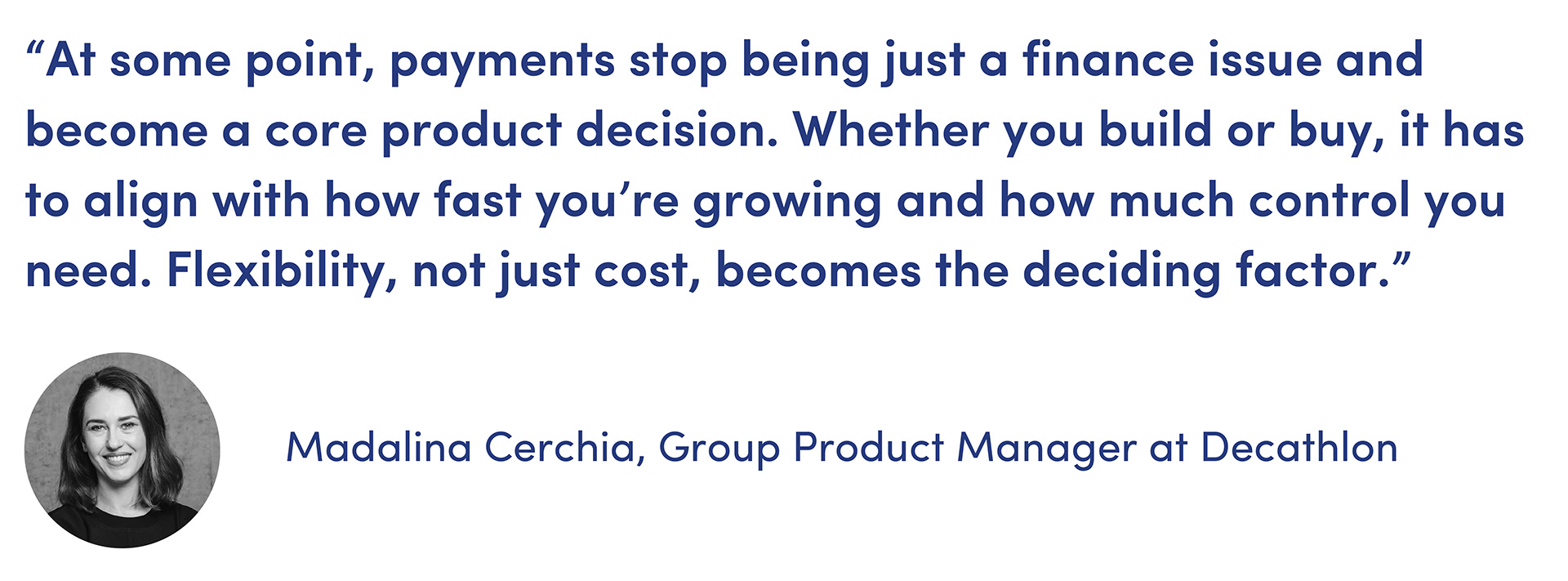
For platforms and marketplaces, payouts (especially cross-border) are a major source of complexity. Preferences vary (e.g., wallets, bank transfers), and local partners with domestic rails can significantly improve performance. Orchestration helps ensure the right method is used for the right user at the right time.
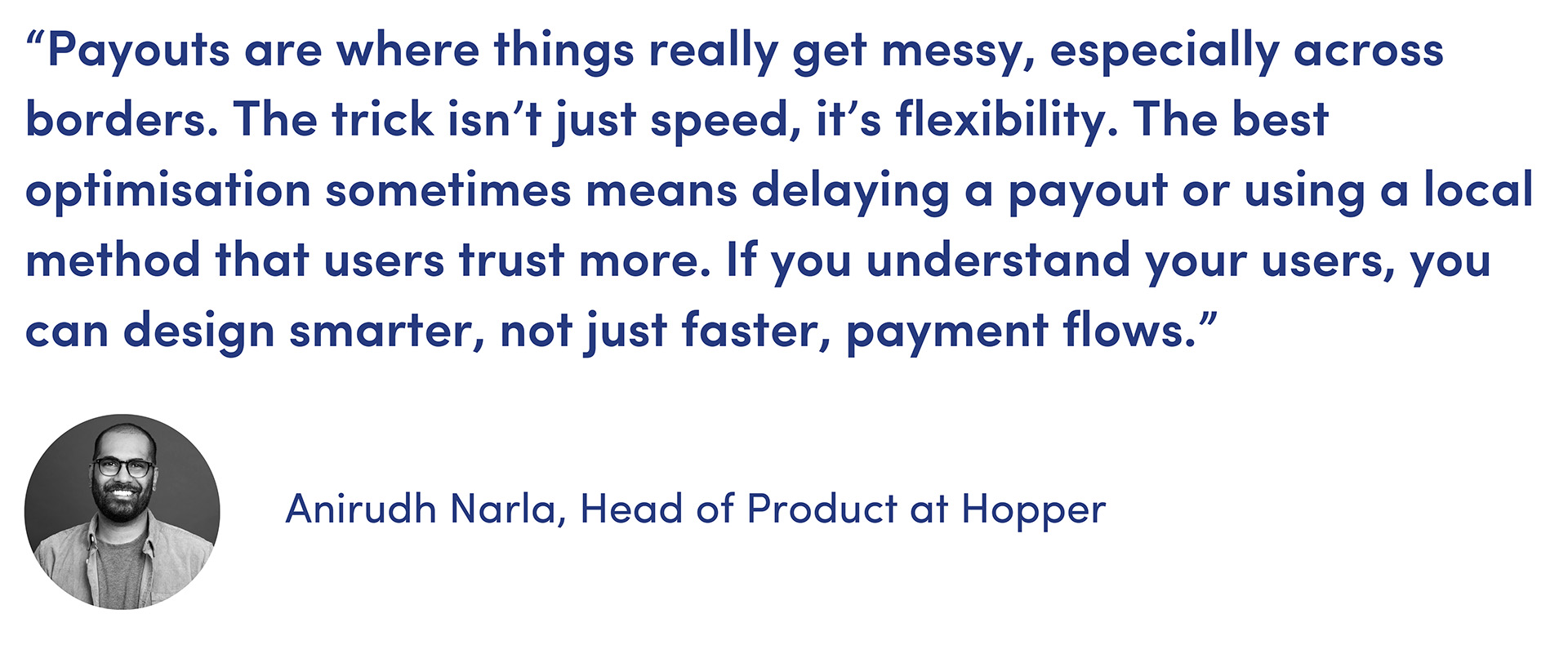
While companies aim for a unified global payment stack, local expertise and integration remain crucial, especially in fast-growing markets like Brazil and India. Payment orchestration platforms help bridge this gap by connecting regional payment methods and PSPs into a consistent core system. This approach enables businesses to comply with local regulations, offer preferred payment options, and boost conversion rates. Ultimately, balancing a centralised infrastructure with deep local knowledge is essential for successful global scaling.
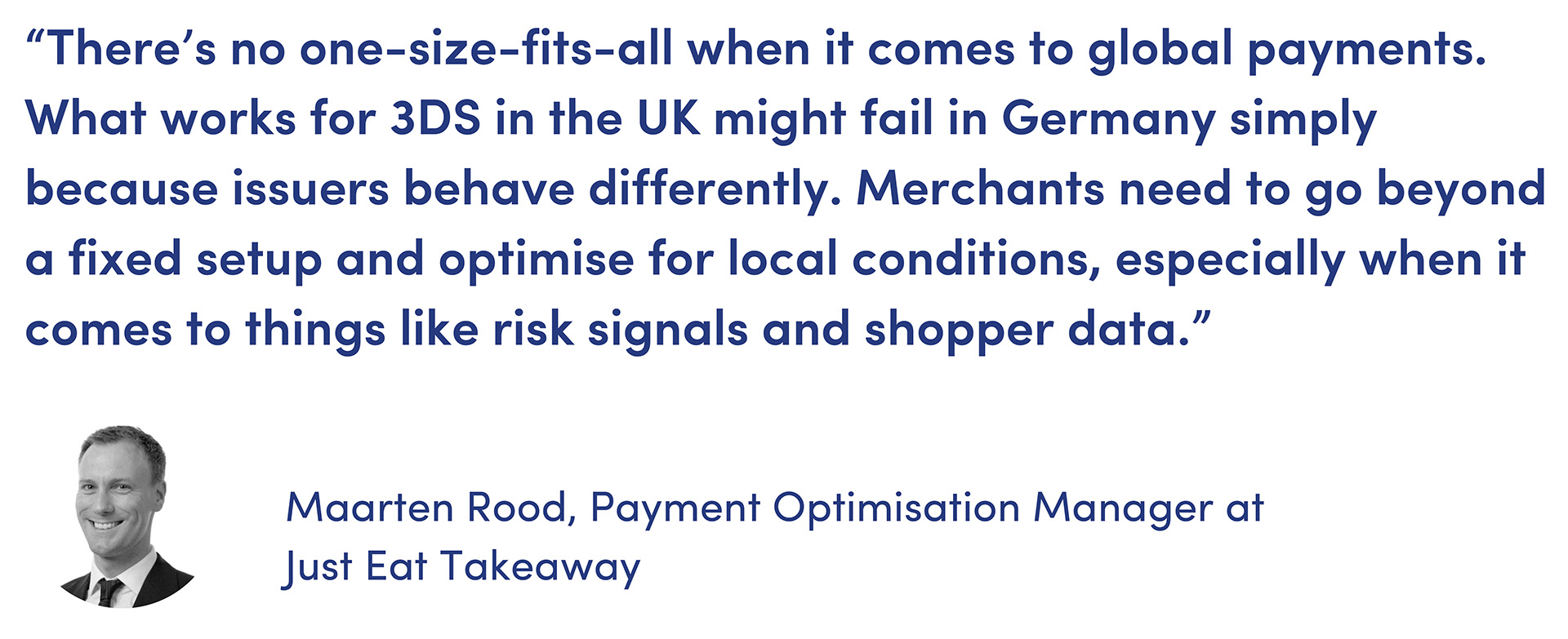
Despite vendor claims, chargeback management remains largely manual and inefficient, costing merchants billions annually. Most companies still rely on spreadsheets or fragmented systems, which limit their ability to respond effectively. As chargeback volumes rise, businesses that build internal tools and automation—like real-time alerts, centralised evidence systems, and API integrations—see faster resolution times, higher win rates, and reduced operational costs. These in-house solutions offer greater control, adaptability, and long-term resilience compared to outsourcing or off-the-shelf tools.
Companies switch PSPs for many reasons—new capabilities, better performance, more flexibility, or simply because they’ve outgrown the original solution. Taking control of orchestration and tokenisation is often the catalyst.
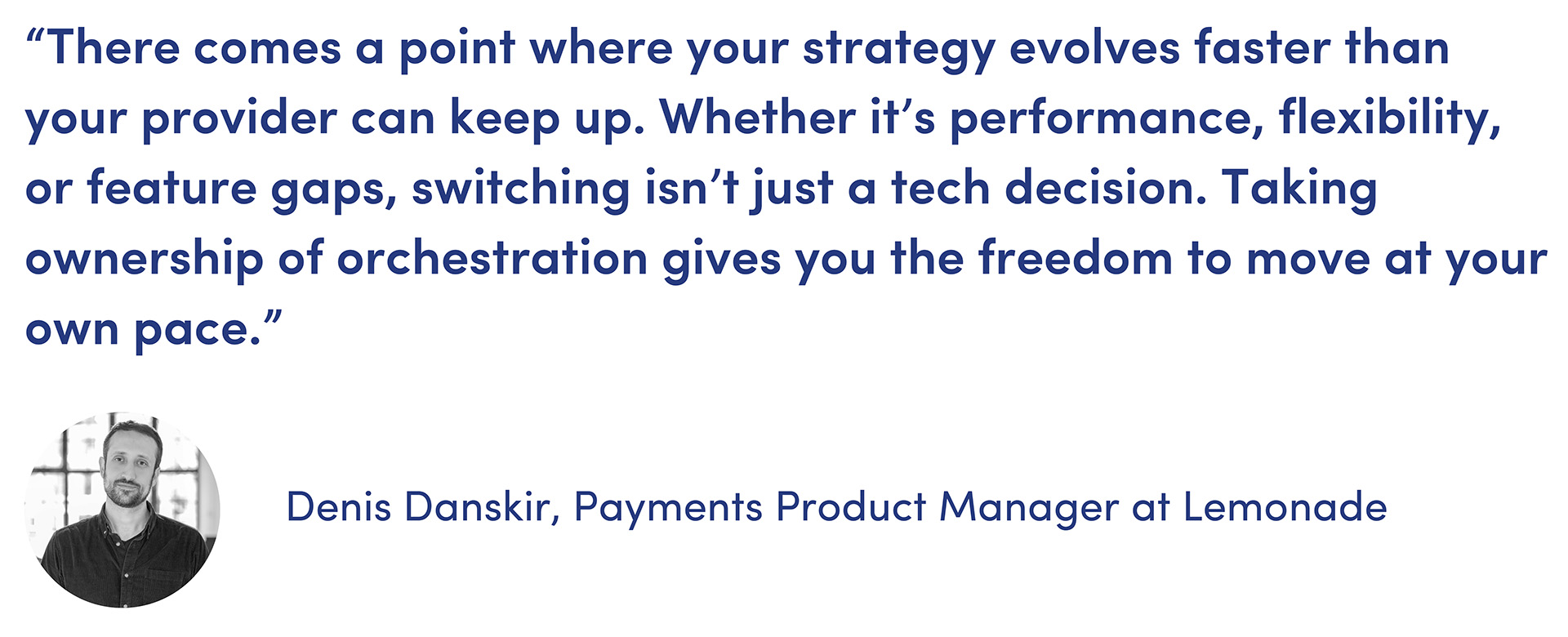

In the coming years, the convergence of online and offline commerce will reach new levels of fluidity. Payments will no longer be siloed by channel; customers expect to move effortlessly between e-commerce, mobile apps, and in-store environments with a unified experience. Innovations like tokenised checkouts and tap-to-pay online are already closing the gap, while emerging modalities such as voice commerce, AR shopping, and wearables are expanding how and where payments occur. Businesses that unify their payment stack across touchpoints will not only reduce friction but also gain a clearer view of their customer journey, leading to stronger retention and brand loyalty.
Payments are becoming increasingly personalised, and identity is now at the core of that transformation. Biometrics such as facial recognition and fingerprint scans are replacing passwords and PINs, offering both convenience and improved security. Beyond that, platforms are using data from user profiles, location, device behaviour, and account history to make real-time decisions on payment flows. The integration of digital identity with open banking and tokenisation is enabling more dynamic, risk-aware transaction logic. This shift will allow companies to authorise, route, or even delay payments based on the unique characteristics of each user, making payments smarter, safer, and more contextual.
The traditional point-of-sale terminal is rapidly becoming outdated. As hardware gets replaced by software, in-person payments are being redefined by mobile-first, flexible solutions. SoftPOS technology, allowing any smartphone, and potentially retail hardware such as scanners and kiosks, to become a payment terminal, is reshaping how businesses handle transactions, especially in retail, events, and field service. At the same time, in-person checkout systems are evolving into all-in-one platforms that integrate CRM, loyalty, inventory, and analytics. Rather than seeing POS as a separate system, leading businesses are treating it as an extension of their digital stack, enabling better customer insights and more responsive service at every touchpoint.
Artificial intelligence is making payments not only faster and safer, but also more meaningful. Leading processors now use AI to fight fraud in real time, optimise authorisation retries, and minimise false declines. But AI’s role goes beyond risk; it’s being used to personalise checkout experiences, recommend products based on transaction history, and even tailor loyalty rewards within the flow of payment itself. As conversational commerce grows, AI agents are also beginning to influence buying decisions and handle transactions autonomously. This trend blurs the lines between payments, personalisation, and marketing, transforming every transaction into a moment of brand engagement.
Payments are no longer built in isolation. The next wave of innovation is being driven by collaboration between fintechs, traditional banks, platforms, and regulators. Shared infrastructure, such as real-time payment rails, ISO 20022 messaging standards, and embedded finance APIs, is enabling faster, more reliable, and more transparent transactions across borders. Banks are embedding fintech capabilities into their offerings, while platforms are increasingly opening up their ecosystems to external partners. These collaborations are fueling everything from instant payouts to embedded lending and digital identity verification. Companies that adopt an ecosystem mindset will gain agility, scale, and access to new capabilities they can’t (and shouldn’t) build alone.
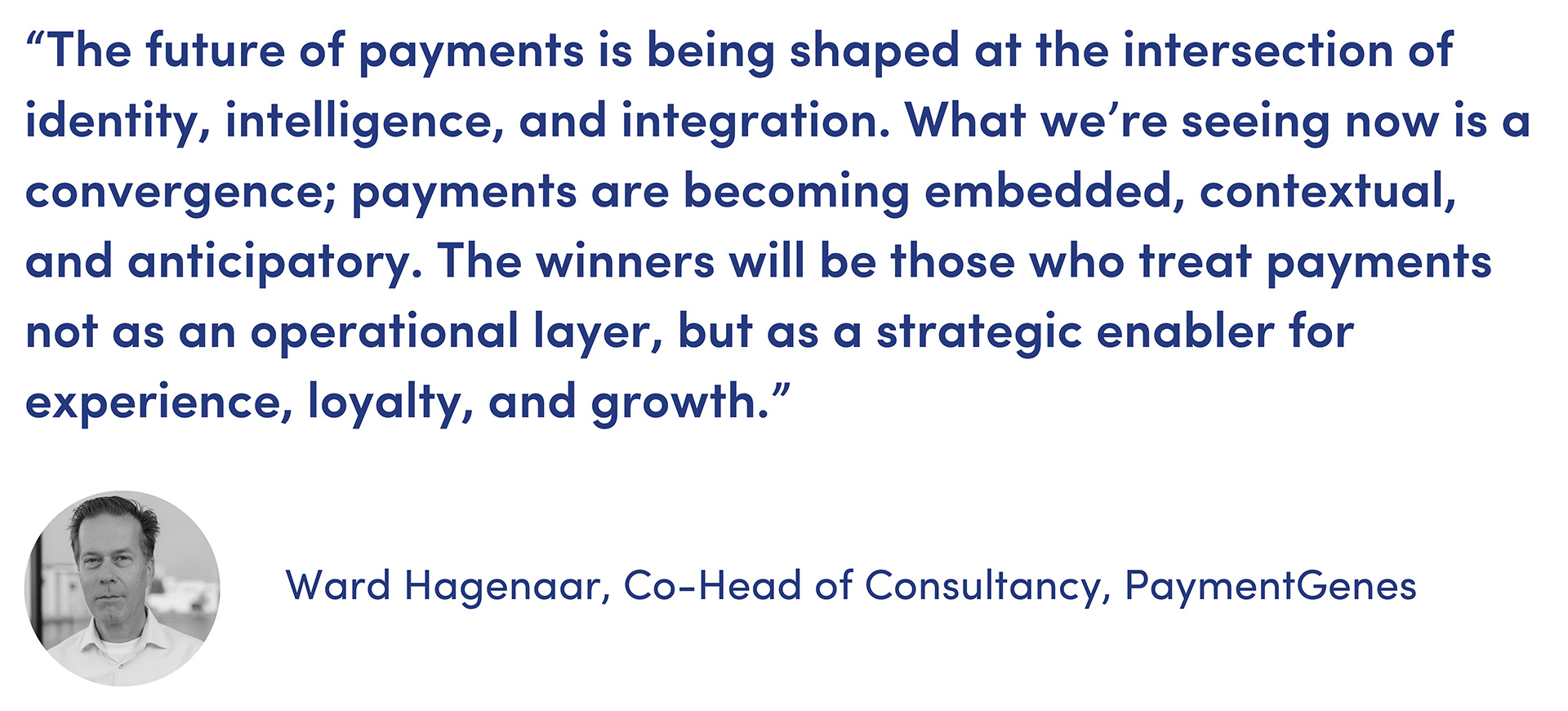
There’s no single playbook for building a payments stack. The right approach depends on your product, your customers, and your stage of growth. But one thing is clear: payments are no longer just plumbing, they’re a key part of your strategic architecture.
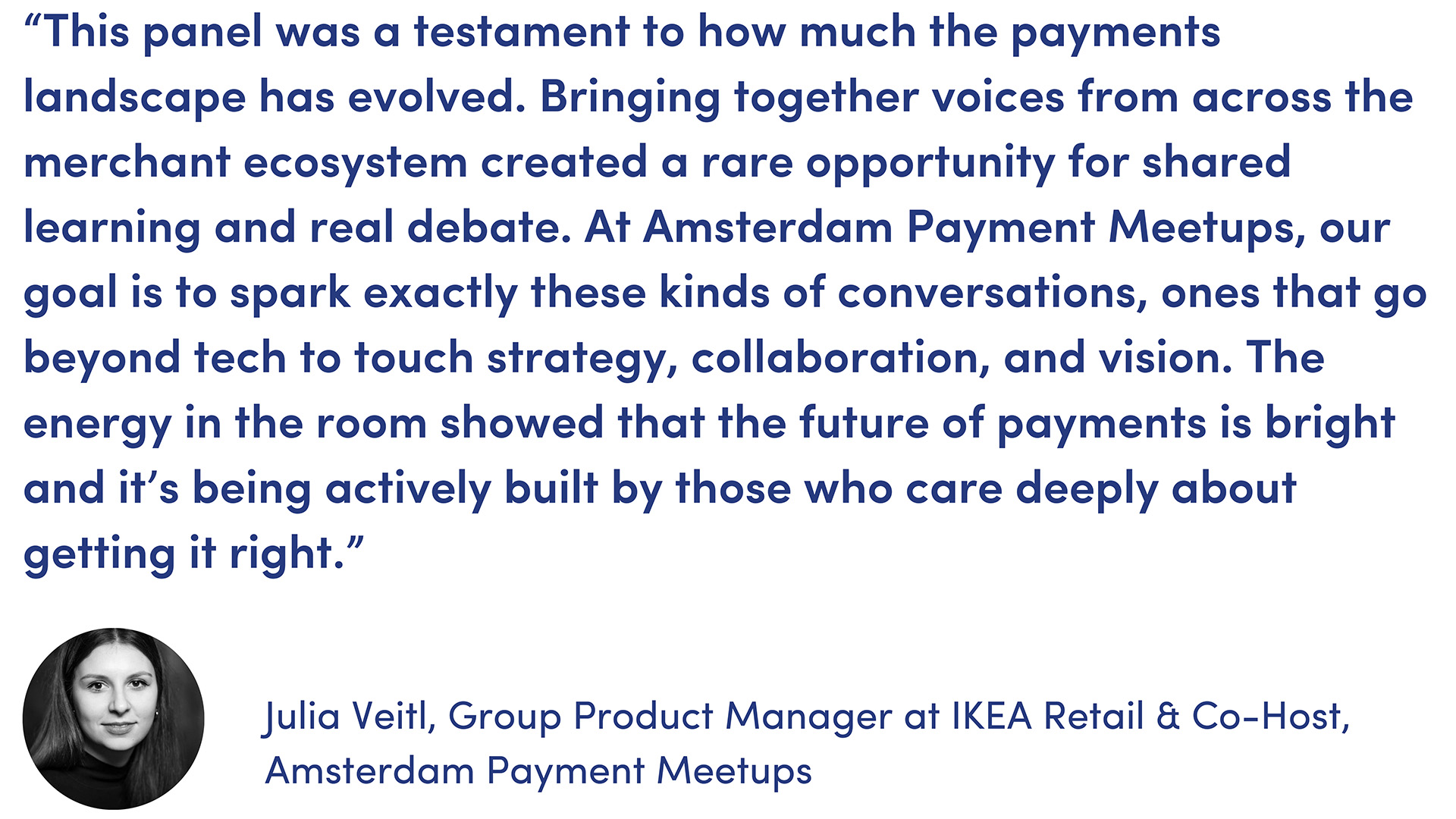

At PaymentGenes Consultancy, we help businesses unlock growth through deep payments expertise. Our consultancy works with banks, fintechs, PSPs, and enterprise merchants to design and execute strategies that reduce costs, drive revenue, and scale operations. From vendor selection and architecture design to M&A advisory via PaymentGenes Capital, we provide end-to-end support across the payments value chain. With market intelligence, industry insights, and specialized talent solutions, we combine strategic thinking with real-world execution, empowering you to lead in an evolving ecosystem.
Founded by Kris Kubiak and Julia Veitl, Amsterdam Payment Meetups is a community-driven initiative dedicated to fostering authentic conversations and connections in payments and fintech. Whether unpacking the complexities of financial innovation or exchanging ideas in a casual setting, the Meetups are designed to build a collaborative, open-minded network of professionals who care about shaping the future of payments, together.

PaymentGenes Connect is our community-driven initiative designed to bring together the brightest minds in fintech and payments to share insights, spark collaboration, and shape the future of the industry.
Built on our role as a facilitator within the ecosystem, PaymentGenes Connect creates space for leaders, innovators, and practitioners to come together through curated meetups, panels, and collaborative content. These events are launchpads for thought leadership, and long-term engagement.
By participating, attendees gain industry visibility, contribute to valuable content like whitepapers and expert summaries, and position themselves as reference points in a fast-moving space. For us, it’s about building a network where ideas lead to action and insight turns into impact.
PaymentGenes Connect is a growing community committed to driving payments forward—together.
